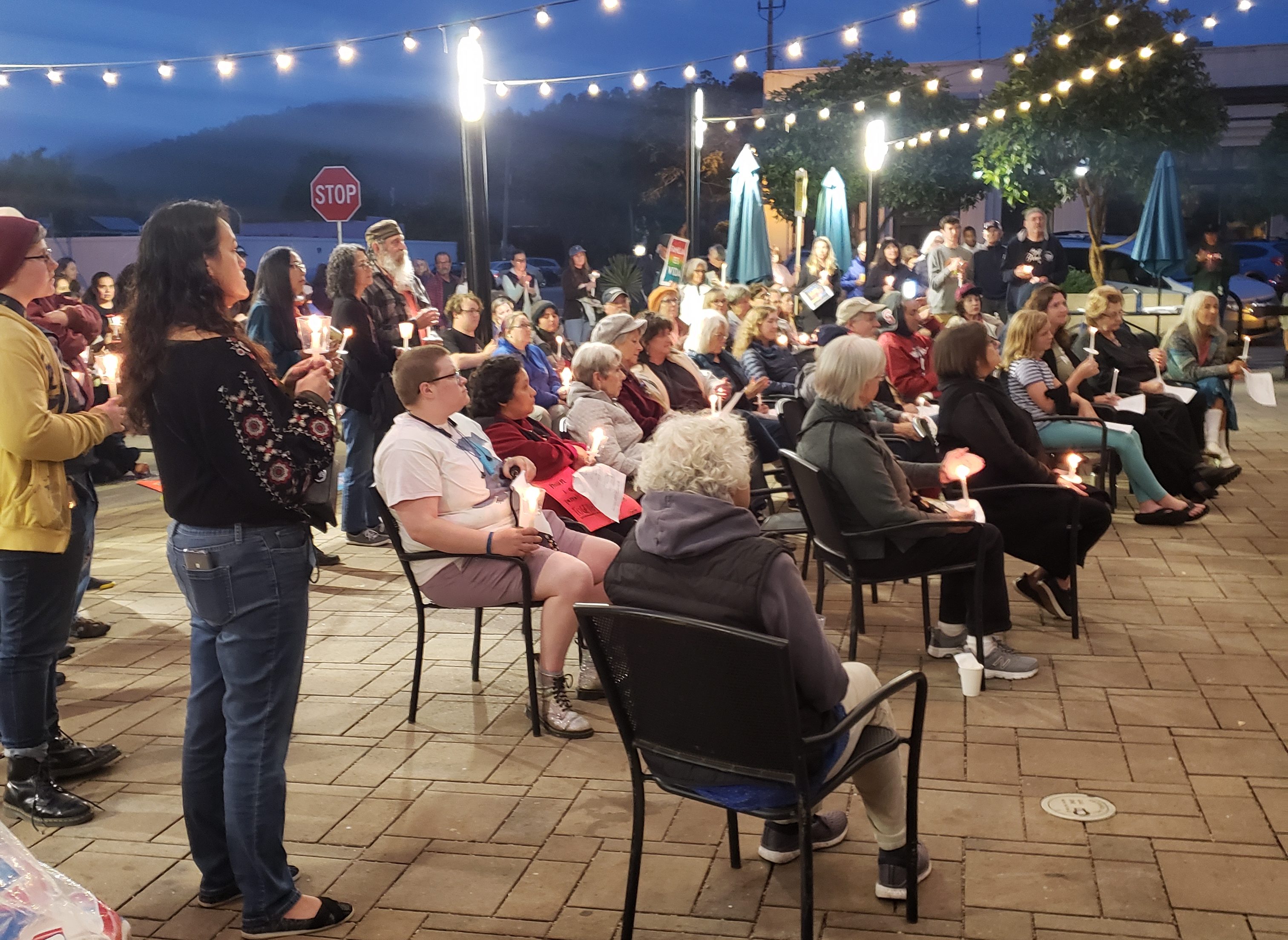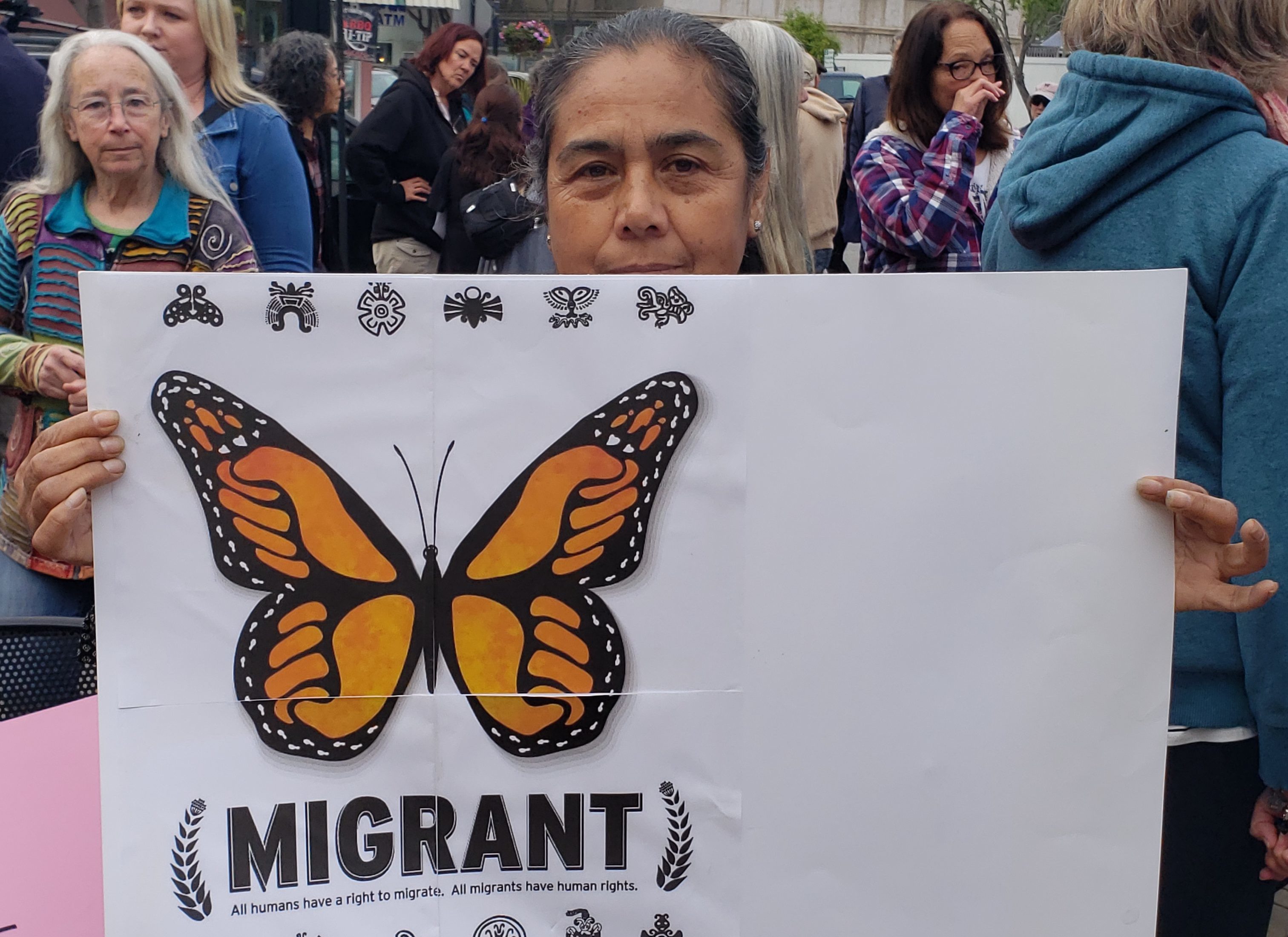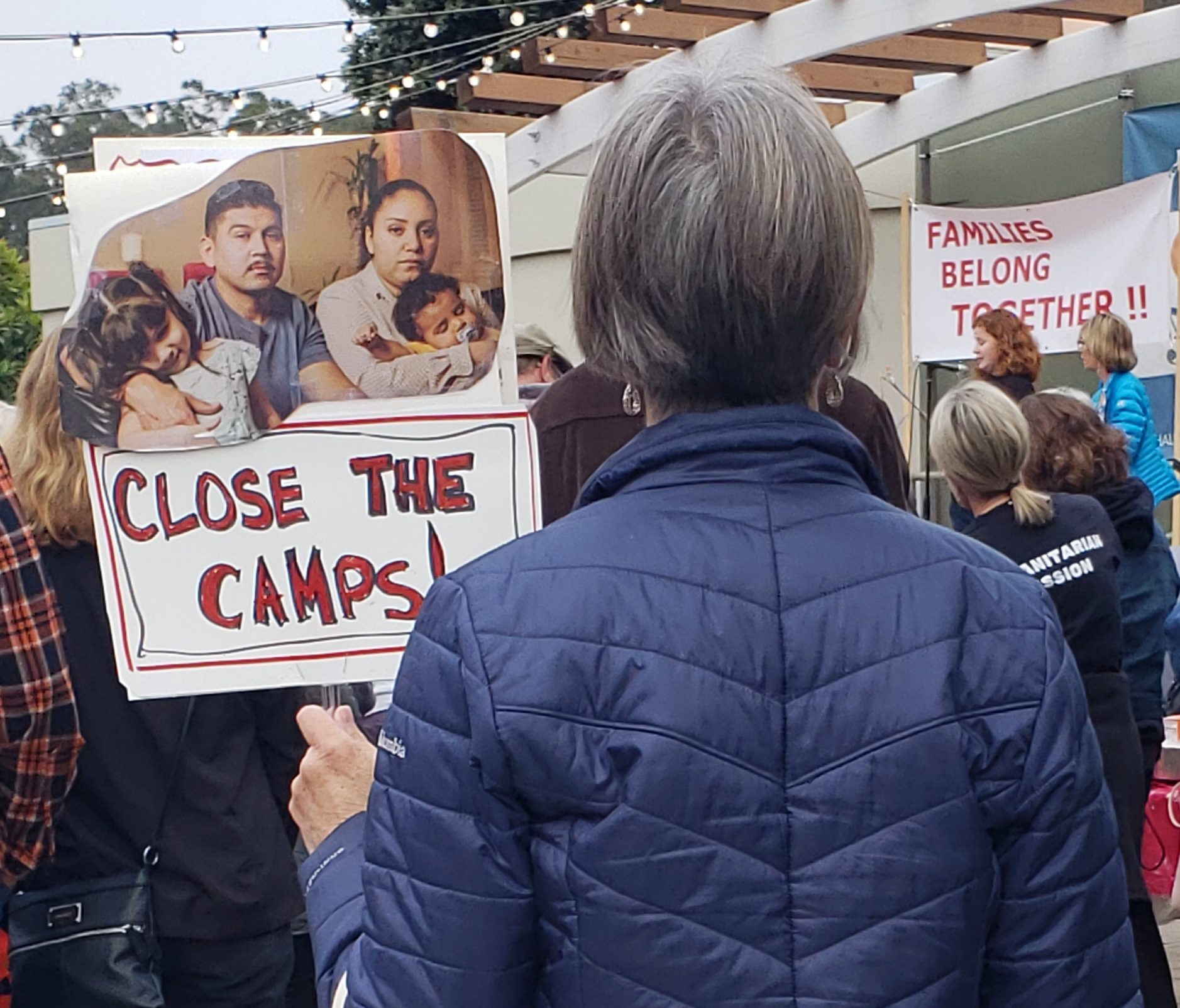
When Alice Linsmeier, the event organizer from Ayudando Latinos A Soñar (ALAS), asked me to speak at Lights for Liberty – a candlelight vigil to end the detention of undocumented immigrants – in Half Moon Bay this past Friday, I was honored to be able to share my story with my community. As an immigrant, people often think that I don’t have a voice – or they try to shut it down. But working with yli, I have learned that I can use my voice to create change — and because of this, I am willing and able to share my story even though it’s hard.
The night before the event, Alice gave me a call. She was upset and angry about the ICE raids planned over the weekend. She asked whether I would feel safe to share my story or if I’d prefer it be read anonymously.
That’s when it hit me. I never really thought that sharing my story could put me in danger. I always shared the reality of my life as an undocumented immigrant from the bottom of my heart, and in doing so, I gained understanding of the value of my voice. But I never thought that sharing this experience could have consequences, and that others were afraid for my well being. After hearing from Alice, I reconsidered and decided to enter an anonymous story instead.
As I was thinking through what to share, I wanted to cry. I was angry and upset. I knew Alice wanted an authentic experience that would move people, but I didn’t know what part of my journey to share. I was angry that I had to do this, that it was up to me to write out my life story as an undocumented immigrant. I had always found it easy to share my story, but with the thoughts of ICE raids in the back of my head, I was very selective about what to share. As I wrote down my experience of family separation, I became more and more emotional.

And then I realized that I’d have to translate my story to Spanish. My hands began to sweat and my anxiety about the dangers was all too real. You see, writing and speaking in English was easy. It had detached me from my story. It wasn’t me, Erika, the undocumented girl who flinched each time she saw any form of law enforcement. The girl who cried when her mother first left to Mexico because she might never come back. Erika, my parents’ daughter. It was Rubi, as I am called in the English-speaking yli professional world, who had done this many times before. Sharing my story in Spanish brought me back to those dark days.
Mac Dutra Park was already crowded with community members when I arrived the next evening. I began to reconsider whether to share my story anonymously. I have attained some legal status here in the U.S. — a privilege which makes me feel safe enough to be able to share my story. YLI taught us to use our privilege to help others, and this was a privilege I could harness. I decided that it was not only important, but necessary, for me to share my story myself.
As I walked through the crowd, I was surrounded by white folks who held signs that said “Free Those Kids,” “Close the Camps,” “Families Belong Together,” “All Humans Have the Right to Migrate”, and “All Migrants Have Rights.” When I was undocumented, I never thought that white folks could be allies. They were the ones who had called me “alien” and “illegal.” Growing up here, I had to hide my immigration status and wasn’t able to do what the others did. I often wished my parents had settled somewhere else, like Los Angeles or Redwood City, where Latinos were the majority population.

My stomach began to ache as I walked up the steps to speak. I had translated my story, and as I shared it with my community, it was hard to look up. I was scared of the response I’d get. I knew the crowd supported me, but those flashbacks surrounded me, so I just focused on reading my story. When I finally looked up, I saw how attentively everyone was listening. At the end of my story – and at the end of every other brave immigrant’s story – the crowd chanted, “We hear you, we feel you in our hearts, we uplift you hand in hand.”
“I feel welcomed and I thank you. I thank every one of you. For the welcoming, for being here today, for being united, for showing how much you care and how much compassion you have for everybody. It’s not an easy thing,” said the next speaker, Joaquin, an outspoken community member.
I didn’t feel the same open arms that Joaquin felt when I came to Half Moon Bay. But as the event came to a close and the crowd gathered in a circle, cupping their candles, I began to see how Half Moon Bay’s community was willing to fight for our rights. And as I thought about the thousands of events happening nationwide, I realized that although this may not be enough to end the detention camps and family separation, it was enough for me to feel safe again.
